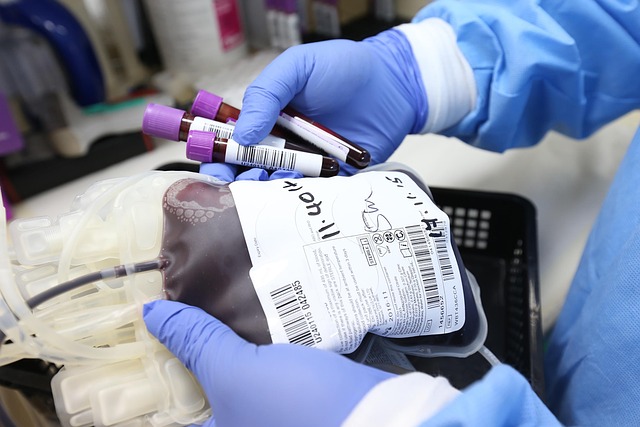Essential Tips for Navigating COPD Clinical Trials
Clinical trials represent a vital pathway for advancing chronic obstructive pulmonary disease (COPD) treatment, offering patients access to innovative therapies while contributing to medical research. These carefully designed studies evaluate new medications, treatment combinations, and therapeutic approaches that may improve quality of life for millions of people living with COPD. Understanding how to navigate the clinical trial process requires knowledge of eligibility criteria, potential risks and benefits, and the commitment involved in participation.

What are COPD clinical trials and how do they work?
COPD clinical trials are research studies that test new treatments, medications, or medical devices specifically designed for chronic obstructive pulmonary disease. These trials follow strict protocols established by regulatory agencies and are conducted in multiple phases. Phase I trials typically involve small groups of participants and focus on safety and dosage determination. Phase II trials expand to larger groups to evaluate effectiveness while continuing to monitor safety. Phase III trials compare new treatments to current standard care in even larger populations, often involving hundreds or thousands of participants across multiple research centers.
The trial process begins with careful screening to ensure participants meet specific eligibility criteria, which may include COPD severity levels, current medications, age ranges, and overall health status. Participants receive detailed information about the study through informed consent documents, explaining the research objectives, procedures, potential risks, and expected time commitment. Throughout the trial, medical professionals closely monitor participants through regular visits, lung function tests, and other assessments.
Benefits of participating in clinical studies for COPD
Participation in COPD clinical trials offers several potential advantages for patients seeking advanced treatment options. Access to experimental therapies represents a primary benefit, as participants may receive cutting-edge treatments years before they become available to the general public. These innovative approaches might include new bronchodilators, anti-inflammatory medications, or combination therapies designed to address multiple aspects of COPD progression.
Clinical trial participants typically receive enhanced medical monitoring and care compared to standard treatment settings. Research teams conduct comprehensive assessments, including detailed lung function testing, imaging studies, and regular health evaluations that provide valuable insights into disease progression. This intensive monitoring often leads to earlier detection of changes in condition and more personalized treatment adjustments.
Additionally, many trials provide study medications, medical tests, and consultations at no cost to participants. The research setting also offers access to specialized COPD physicians and healthcare teams with extensive expertise in managing complex respiratory conditions.
New drug development and treatment strategies in COPD research
Current COPD research focuses on several promising therapeutic areas that address different aspects of disease management. Researchers are investigating novel bronchodilators that provide longer-lasting symptom relief with fewer side effects. Anti-inflammatory agents targeting specific inflammatory pathways show potential for slowing disease progression and reducing exacerbations.
Regenerative medicine approaches, including stem cell therapies and tissue engineering, represent emerging frontiers in COPD treatment development. These experimental treatments aim to repair damaged lung tissue and restore normal respiratory function. Researchers are also exploring personalized medicine approaches that tailor treatments based on individual genetic profiles and disease characteristics.
Combination therapies that address multiple disease mechanisms simultaneously continue to show promise in clinical trials. These approaches may include combinations of bronchodilators, anti-inflammatory medications, and newer agents targeting oxidative stress or tissue repair pathways.
Patient safety and considerations before joining clinical trials
Safety remains the paramount concern in all clinical trial participation decisions. Potential participants should thoroughly discuss trial involvement with their current healthcare providers to ensure the research study aligns with their overall treatment plan. Some trials may require temporary discontinuation of current medications or impose restrictions on other treatments, which could impact existing symptom management.
Understanding potential side effects and risks associated with experimental treatments is crucial for informed decision-making. While research protocols include extensive safety monitoring, experimental therapies may carry unknown risks or unexpected interactions with existing health conditions. Participants should feel comfortable asking research staff detailed questions about safety protocols, emergency procedures, and long-term monitoring plans.
Time commitment represents another important consideration, as clinical trials typically require multiple visits over several months or years. Transportation to research facilities, scheduling flexibility for appointments, and the ability to complete study requirements should be carefully evaluated before enrollment.
Future perspectives on COPD management and therapy
The future of COPD treatment appears increasingly promising as research advances toward more targeted and effective therapies. Precision medicine approaches that customize treatments based on individual disease characteristics and genetic factors are becoming more sophisticated. Digital health technologies, including remote monitoring devices and telemedicine platforms, are being integrated into clinical trials to improve patient access and data collection.
Researchers are also investigating preventive strategies that may slow or halt COPD progression in its early stages. These approaches include identifying biomarkers for early disease detection and developing interventions that address underlying causes of lung damage before significant symptoms develop.
The integration of artificial intelligence and machine learning in clinical trial design and patient matching is expected to improve trial efficiency and success rates. These technologies may help identify optimal candidates for specific treatments and predict individual response patterns to experimental therapies.
Finding appropriate clinical trials requires research through reputable databases such as ClinicalTrials.gov, consultation with COPD specialists, and contact with academic medical centers conducting respiratory research. Patients should work closely with their healthcare teams to evaluate trial opportunities and make informed decisions about participation in advancing COPD treatment research.
This article is for informational purposes only and should not be considered medical advice. Please consult a qualified healthcare professional for personalized guidance and treatment.




